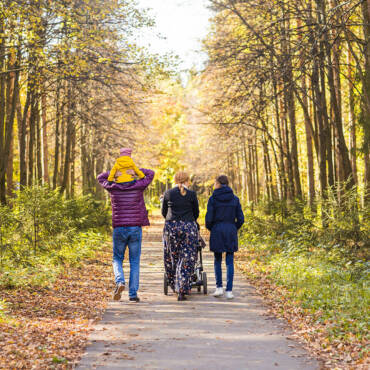Children and School-Related Social Anxiety
Regardless of age, many kids find it really difficult to adapt to various social situations they haven’t dealt with before. The school setting presents numerous opportunities to experience new situations which can trigger the development of social anxiety. For this reason, many children develop social anxiety sometime in their school career. If you think that your kids are dealing with it, too, make sure to keep on reading. Here are some of the most common symptoms of social anxiety in children, as well as useful ways to help them manage or even overcome it. So check this out and let’s get down to business right away!
What are the symptoms of social anxiety in kids?
In today’s world, around 75% of kids between 8 and 15 years of age experience at least some of the symptoms of social anxiety. While this is a disorder that can occur out of a childhood history of shyness or social inhibition, it can also be triggered by a traumatic experience, such as bullying. As social situations trigger fear or anxiety in kids, which can result in crying, emotional outbursts, extremely limited verbal expression, distraction, and many other behaviors, some kids work to avoid social situations whenever possible. Sometimes their dread of social events can occur weeks in advance, and they may tend to cling to familiar people whenever possible. As for the physical symptoms, there can be racing heart, blushing, trembling, shaky voice, and nausea, which are frequently identified in anxious kids.
How to help your kids deal with social anxiety related to school
Parents need to know that social anxiety in the school environment does not have to doom your child to an ongoing negative school experience. Please know that there are a lot of different ways to help them navigate their social anxiety. You can help empower your kids! Here are some useful interventions to consider. Check these out.
Boost their self-esteem
Even though boosting your kids’ self-esteem is one of the best ways to outgrow social anxiety, this often isn’t the easiest task in the world. This is particularly true if your children have been bullied. So, proceed thoughtfully and take one step at a time. The first thing you can do is to be extra supportive and praise even the smallest tasks they complete on their own, such as going to the store alone, talking to their neighbors in the street, or answering the phone. This might seem insignificant, but even the smallest praise can make a huge difference. Notice what praise feels like to you as an adult! Praise and positive affirmation will encourage your child to repeat the pro-social behavior. In time, many children will experience a reduction in their uncomfortable feelings associated with socializing.
Help them deal with the school environment
 Many kids develop symptoms of social anxiety once they start school, which is why it is critical to help make this transition as easy as possible for them. When children become very quiet in school or have difficulty interacting with other students or teachers, loneliness and isolation are common experiences, and learning issues and impaired school performance often result.
Many kids develop symptoms of social anxiety once they start school, which is why it is critical to help make this transition as easy as possible for them. When children become very quiet in school or have difficulty interacting with other students or teachers, loneliness and isolation are common experiences, and learning issues and impaired school performance often result.
In order to help your kids deal with the school environment, ask them what kind of support they need from you. Help them advocate for what they are needing. Brainstorm with you kids ways they can prepare themselves for the school environment and support them with anxiety reducing skills to implement while at school. Even positive control tactics like organizational skills can help calm a child’s nervous system. Since anxiety can disrupt a child’s ability to absorb and/or retain information, they might need help with homework or with studying.
You might also try organizing play dates or group activities outside of school where they can interact with their peers in a different atmosphere, which could increase their comfort with school mates and decrease their anxiety at school, also increasing their ability to take in information and integrate it into their learning.
Support them by showing empathy
Empathy is the ability to understand and share the feelings of another. Talk with your child about how they are feeling at school and empathize with their anxiety. Share with them that you, too, have been in similar situations and have experienced similar feelings in your life. This communicates to them that they are not alone and that the feelings they’re dealing with can be successfully managed. Sharing these experiences with your kids is extremely important as they’ll see that social anxiety is terribly common and can happen to anyone, without exception. When they know that you’ve been through the same, it’ll be much easier for them to cope and will help them to feel less alone and isolated.
There are many useful ways to deal with children’s social anxiety related to school. I’ve given you a few here, but I want to encourage readers to research any number of anxiety reducing skills and anxiety resources available online as well as in your kids’ school. Social Emotional Learning is a common resource available in today’s schools, along with school counselors and social workers. As a parent, your job is to remain persistent in your support and trust the loving, nurturing relationship that is yours to build with your children.
Resources:
Isabel William… consultant by day, blogger by night, and Mom to twins 24/7. Areas of interest includes education, well-being, mental health, and self-improvement. Considered by her peers a lifetime educator whose passions include people, parenting, education, science, and a love for writing and helping.
For more information on children and school-related social anxiety, contact Foundations Family Counseling.




